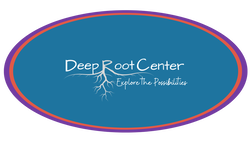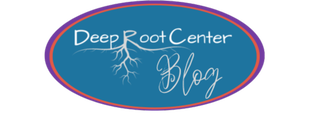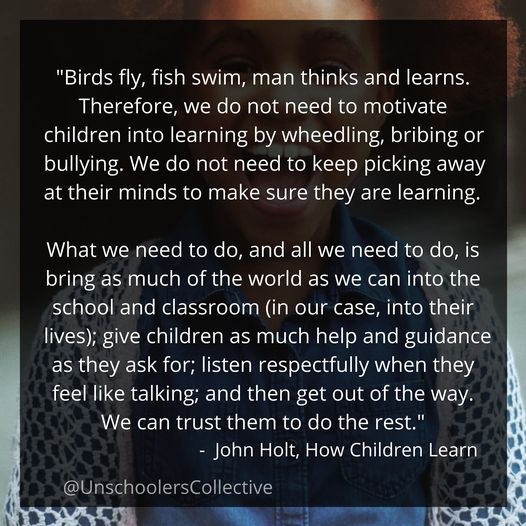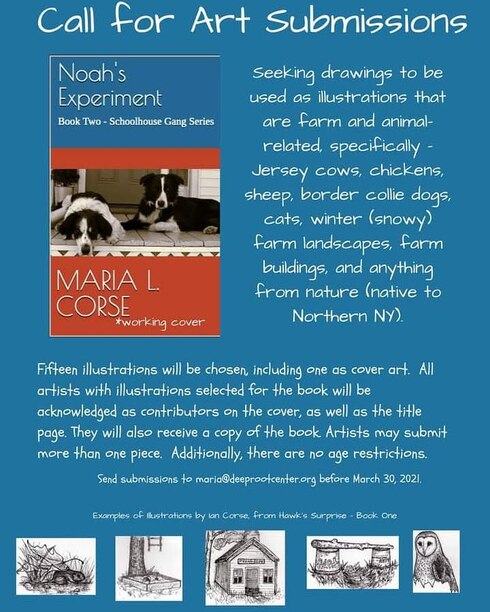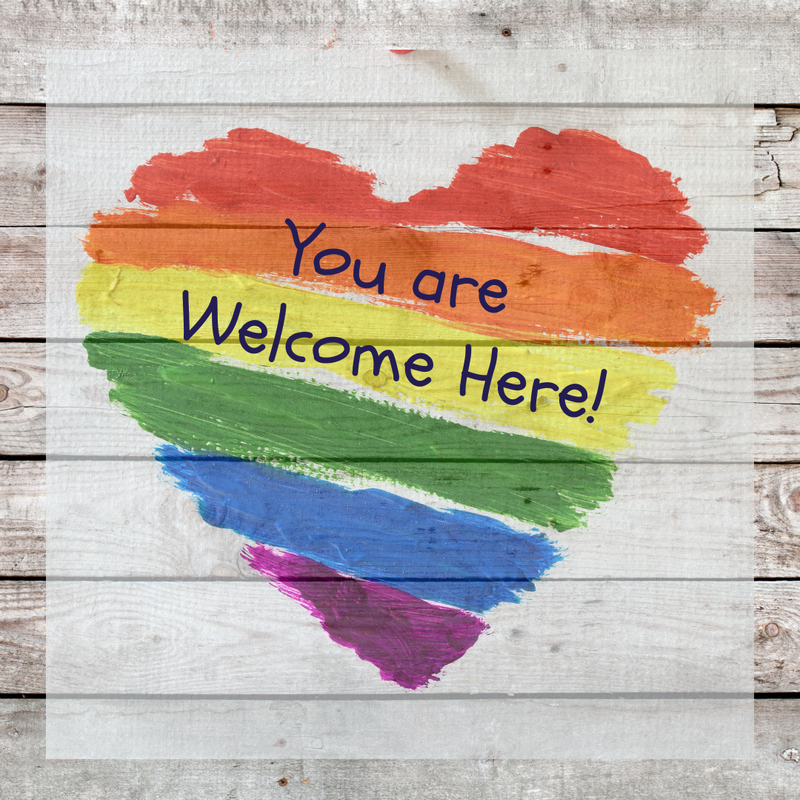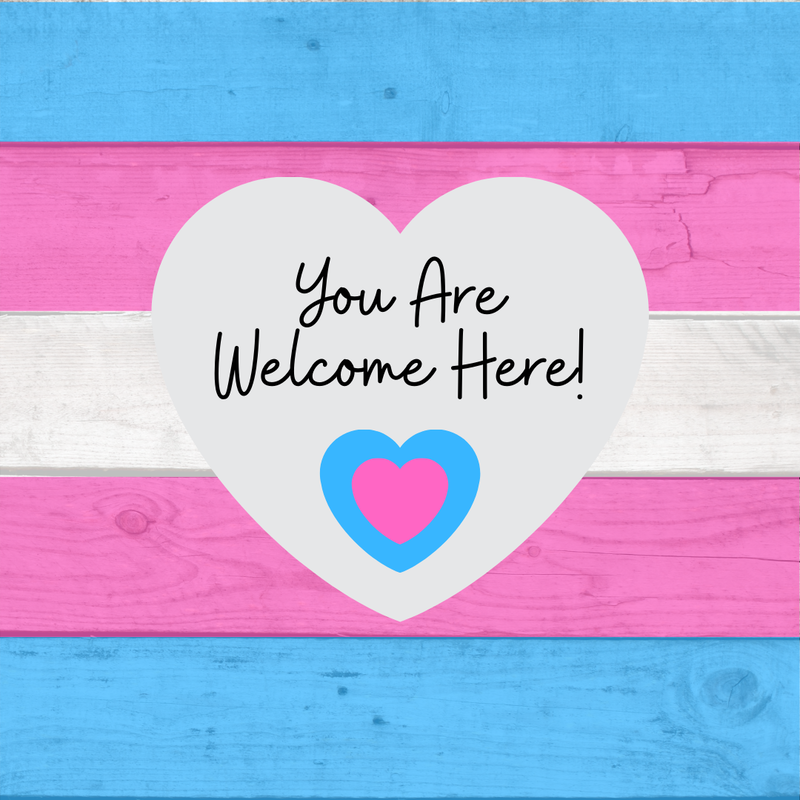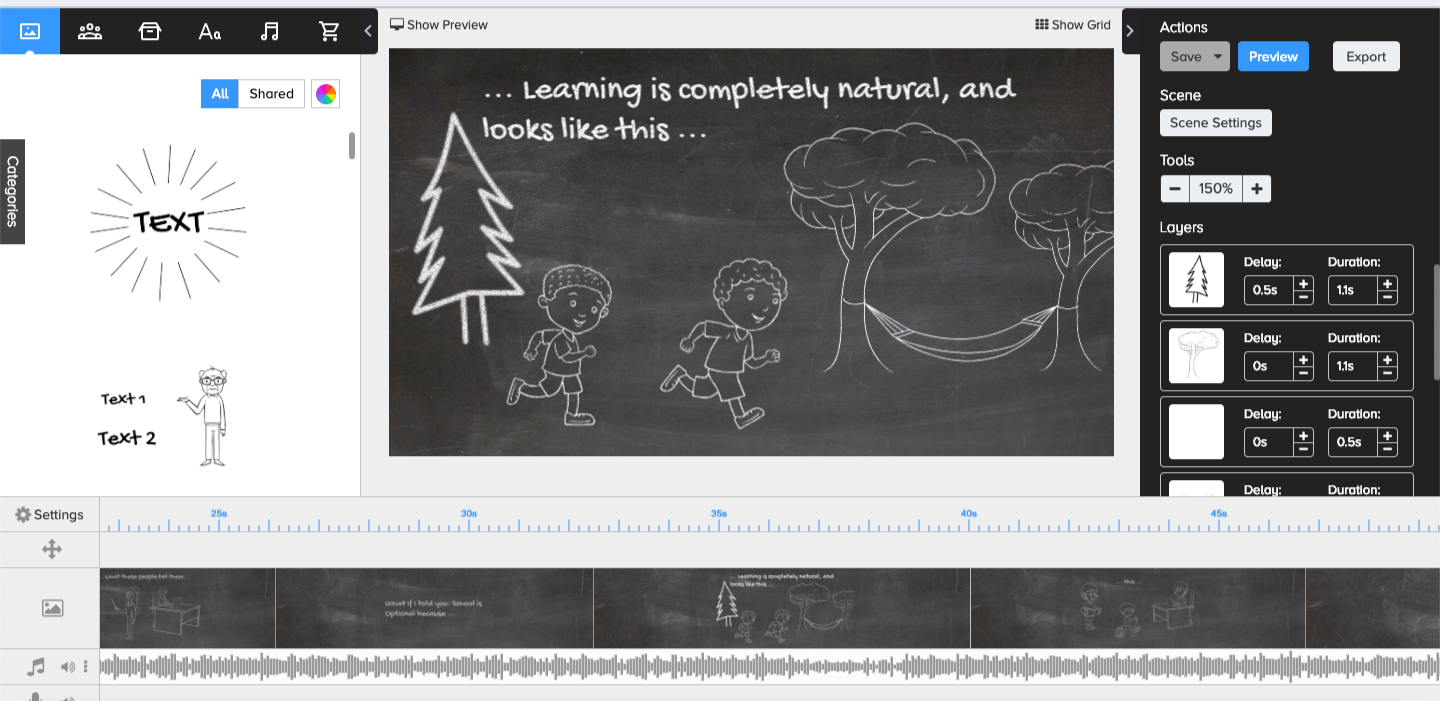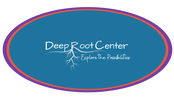|
I would surmise that you didn't just learn one thing - and probably gained knowledge that you didn't even realize you had. This is because there are a few absolute truths about learning that we have negated on a societal level: 1) Learning is natural - every one of us is born with innate curiosity and the desire to explore and discover things about ourselves and the wider world. In the first year of your life, you mastered more than you will during the remainder of your entire life. No one explicitly taught (or forced) you to suckle, track objects, grasp, smile, giggle, make word-like sounds, rollover, scooch and crawl, walk, or talk. The adults in your life were there to support you and provide the resources you needed to survive and thrive. There is no reason your inherent impetus to learn will disappear in your lifetime. 2) Personal interest is the driver behind every bit of knowledge you acquire. Authentic understanding is held deeply within you - not something you memorized long enough to regurgitate the info onto an examination paper and proceed to forget. This concept came up last evening when I mentioned the ship currently stuck in the Suez Canal. I have a general idea of where it is in the world but couldn't pinpoint it to say what bodies of water it connects. Whereas Mike, my husband, could tell you the coordinates. (Well, maybe not precisely, but you get the idea.) Mike has always had a keen interest in maps and geography. He, quite literally, asked for an atlas for his 9th birthday. I, on the other hand, worked hard to memorize world maps in ninth-grade social studies. I still remember the pain of writing the names of each country and body of water in the Middle East on the stack of printed maps that I carried around in my notebook. Yes, I retained each one long enough to get the high 90s on each of the map tests, but today struggle to pull up a mental picture of each section of the world. But yet, I took osteology as an elective for my Anthropology degree - and, for the most part, still know the names of all the bones and where they are in the human body. 3) Playing is the best way to learn - anything! On the most basic level, humans seek out pleasure. Neuroscientists will tell you the names of all the chemicals released in our brains when engaged, connected, happy, content, and captivated by something. They can also name the adverse cocktail delivered to our nervous systems that shuts the learning process down when coerced or fearful. I intentionally use the word "play" when I describe anything I do - partly to normalize the concept of enjoying the learning process. But, I also use it to describe how I feel while I am figuring out something new. Having fun does not take away the difficulty, rigor, or grit. It permits us to make mistakes, get messy, flounder, pause, reassess, and decide whether or not to resume. It allows for exploration and self-discovery. We are culturally confused to believe that learning is represented by the final product when in actuality, it is all about the process. There may not be something tangible to hold up at the end - it could be the feeling of satisfaction or, even, the realization that it isn't something you want to pursue. I'll ask again - what did you learn today? Now think of the things you did naturally without thinking about them, explored because you were interested, and the knowledge you acquired as muscle memory because you played, practiced, and had fun. DRC News Deep Root Center has openings at both of our Centers for next year. Please get in touch or visit our website to learn more. I am still accepting illustrations for my second book - Noah's Experiment. If you would like to submit drawings, paintings, etchings, etc., please send them to me here. Yesterday I was the unwilling witness, through the closed office window at the Center, to an incident of ethnically inspired bullying. At first, I didn't understand what was going on when I heard the muffled voices. A black college student was walking past toward the village - which is not an unusual sight. I could only see him, so I was confused to hear voices. Then I saw him turn around, facing the house next door, gesture to himself, say something, shrug, shake his head, and proceed to walk backward a bit, still shaking his head, before turning around to continue his trek down the street. It was only after he was past our property that I realized what I had heard. At the moment that it hit me, I was absolutely rip-roaring, madly furious. Fortunately, I stopped for a moment to consider the fallout before instinctively running out to confront the person on the neighboring porch. DRC is a haven for children. The building is empty for days on end (especially now, during the pandemic). Those two facts were enough to stop me from standing up against bigotry and hate speech in our neighborhood. I could not stop thinking about it, though - driving to the grocery store and then home. The same thoughts kept circling my head - these unfortunate SUNY Canton students have to run that gauntlet every damn time they have to walk to the store or work. How many times do they have to listen to that bullshit in a given day? What does that do to their psyche? And, what does that say about our village and the North Country, in general? I grew up here - So, yes, I know this is nothing new. But, between the confederate flags flying high (the hypocrisy astounds) from the coal-rolling, "big ass" pickup trucks covered with offensive stickers, the racial slur laced epitaphs spray painted and chalked throughout the NoCo, and everything in between (social media comments), this is an entirely different level of hate. I won't even touch the PR coming out of the local law enforcement agencies in response to police reforms. If you would like to read some of the garbage, this is a recent report about the Malone Police from NCPR. So the question circling my mind last evening is: what can I (we) do, without endangering DRC or our students, to help the BIOPIC, and other people at risk, who have no option but to walk by that one house every time they need to go to town? I understand that in the grand scheme of things - this is infinitesimal. However, is there a way we can make their lives just a little bit better? Is there something we can do to put a smile on their face (and heart) and let them know we appreciate them and they are welcome here? I also want them (and the perpetrators) to understand that we will not tolerate bullying or hate speech in our front yard (or, our community). Then I had an idea - which is related to another incident from last December. Bear with me through the background story: Last spring, the front yard became a huge mud hole that trapped two vehicles at different times. One required a tow truck. I decided to install a pallet fence as a barrier to stop people from parking on the lawn. A few St. Lawrence students worked hard during "make a difference day" in October to hammer in the t-posts and slip the pallets over them to create the fence. Before we could hang flower boxes and create a beautiful art installation with them, as intended, we closed the Center for COVID in mid-November. In early December, I got a call from the code-enforcer telling me to take down the pallets because someone had complained that they were not in keeping with the "character of the neighborhood." Instead of arguing or pleading our case, we complied. When we go back in April, I want to use those pallets to create a different kind of art installation - one that has social justice and anti-racism at its core. The kids can design this beautiful statement to celebrate the diversity and uniqueness of each individual. It will serve as a testament to the fact that we will not tolerate hate speech or bigotry in our front yard. I can imagine children throughout the NoCo, taking on this project as a community effort. With beautifully hand-painted signs covered in messages of inclusivity, kindness, and hope, you, too, can proclaim, "not in my front yard!" These are some examples of what I have in mind. You can be sure DRC members will come up with ideas much more creative and beautiful. DRC NewsAs mentioned last Sunday, we will be back in-person at both centers for two days each week, beginning the week of April 12th. If you would like to help with the above plan or other outdoor gardening and carpentry projects, please get in touch. No, not that one. I am talking about the myth of "lost learning." The one formally named the "summer slide." There are several reasons for the perpetuation of this falsehood - the largest, in my estimation, is to preserve the notion that schools (and all they represent) are essential for society to progress. Therein lies the crux of the matter. For the most part, the folks concerned about lost learning stand on the left side of the political spectrum. They use similar manipulative and intimidating tools to propel this false notion, as the folks on the Right do to promote the other Big Lie. The most effective being fear. "Oh my God, my child has lost an entire year of learning." "They are going to fall behind." "My kid will never catch up; they won't get into college, get a good job, or (fill in the blank)." Whoa, hold up! Before you head down that bottomless rabbit hole, let me explain a few things about authentic learning: a) Falling behind, what? Their peers or grade level? These are both artificial measurements. The State has determined grade levels and standards, along with curriculum for convenience. There is no real connection to what children are "capable" of at particular ages. More importantly, every single child develops differently. One may naturally learn to read at the age of four, and their friend may not grasp the concept until they are eight. They can both read anything they want to by the age of twelve or thirteen, and you can not tell who read earlier. b) Anything that was really learned and understood can not be lost. Yes, it can lay dormant, but it isn't gone. Think about those things that you have learned but don't use every day. For example, starting the generator and switching the inverter to "charging" is a process that I have to think about for a minute before doing it the first time each Fall. For you, it may be long division, converting a fraction into a percentage, or doing your taxes. Once you go back to it, with a bit of prompting, you remember the steps. c) The most powerful way to learn something is through play and self-led exploration (this is a concept I have touched on before and will again, soon). When you are genuinely interested in something, and it is relevant to your goals and aspirations, even if it is difficult, acquiring the knowledge is fun and enjoyable. Yesterday, I played (was utterly captivated for the entire morning) with Doodly, a software program that creates short animated videos. I wanted to learn how to use this program because it is another incredible tool in my marketing tool belt. (PS - you can watch my first attempt below.) d) Tangentially related, it takes multiple times longer to learn something through rote memorization or coercive methods, especially when it also meaningless to you at that moment. Yup, this is a tough one for most folks to wrap their heads around. But, but, but - how will kids learn what they need to if we don't compel them to do it? We are all natural learners. Kids will figure out how to access necessary knowledge when they need it to do something that is important to them - full stop. I ask you to stop and consider that our entire educational design is based upon a conservative ideology - the trickle-down theory. (Yes, even so-called progressive education.) Magnanimous folks, at the top, with all the knowledge, guide their students through that predetermined, finite, and compulsory curriculum by releasing their scholarship in bite-size increments. And then, they assess their understanding by asking them to regurgitate it on standardized examinations. Does this seem like something we should be afraid of losing? Cultural progress comes from open, curious minds and a willingness to change - not in the preservation of a static, antiquated, coercive system. DRC News Big News! Our physical doors in both Canton and Lawrenceville will open again, April 12th, with our full COVID safety plan in place. To begin, each Center will be in session two days a week. We will retain our remote schedule for the days we are not in person and for all of our Distance Learners. If all goes well, we will return to our full schedule for the month of May. This plan, of course, will be dependent upon COVID numbers remaining low in St. Lawrence County. One year ago, on March 10th, which also happened to be my youngest child's 23rd birthday, I left DRC at 5:30 pm with a raging fever, uncontrollable shaking, and body aches (that came on like a steam train), as I have never experienced before (and never want to). No, I didn't have COVID, just a "death may be less painful" case of the flu. Little did I know that closing the Center for the last three days of that week for my illness would coincide with a pandemic and extend through the remainder of our academic year. In the beginning, I was laid flat by the aches, fever, and utter exhaustion of this particular flu virus. I had no thought of (or desire to think about) DRC or "my" kids. My main concerns revolved around getting down the stairs to use the bathroom and refresh my glass of lemon water and cup of ginger tea - my only sustenance for days on end. That second week, we did try to set up a Discord server for the DRC members to connect, do art, play games, etc. But besides a couple of kids and our staff person who set it up, it had little engagement, and I did not have the physical capacity to do anything but witness its failure from the sidelines. Consequently, beyond occasional check-ins, the DRC kiddos were happy to be totally on their own for the remainder of our academic year. Those months gave me time to work on an idea (that never got any traction) to provide services to public school kids who were stuck at home doing remote learning. I also took on creative endeavors and sorted through hundreds of blog posts (with the idea of compiling them into a book). As you may have noticed, most of those projects fell by the wayside as the pandemic raged through the summer. The reason being - I couldn't focus on anything - even reading. For someone who often devours a book a day, I have not been able to concentrate or settle long enough to read even a paragraph this entire year, except the one book I managed to get through in December. The disconcerting inability to concentrate (on anything - even creative ideas) and the budding feelings of uselessness were beginning to wear on me. I needed a purpose! Therefore, in July, I went back to the Center a few days each week to prepare to bring the kids back in September. In August, I was in full gear. And by Labor Day, both of the Centers were physically ready. We had one staff person and two apprentices through the One-Stop Career Center in Canton and a part-time staff person in Lawrenceville. We had a complete COVID safety plan, including an outdoor shelter in Canton built by one of our families, SLU Community Based Learning (CBL) volunteers joining us remotely, and a Distance Learning Program in the works. Little did I know that those last two pieces were the linchpins that propelled us to where we are today. Those original seven CBL students facilitated fifteen virtual sessions on Google Meet each week. They provided the impetus needed to offer additional classes by DRC staff through the remote platform for our distance learners. COVID numbers in St. Lawrence County began climbing again in late October. It was clear, by mid-November, that we needed to once again go fully remote for the safety of our entire crew. We were able to continue our schedule only because we had established the routine of virtual sessions. The kids happily engaged and chose sessions that interested them. Currently, our calendar has expanded, with a total of twelve CBL students facilitating at least two sessions each, plus DRC staff filling in with other requested classes, all offered through the DRC Discord server. Even now, once again, teetering on the edge of angst and frustration, I can look back at this timeline and feel immense gratitude for the gifts this past year has brought forth. If it weren't for this pandemic, our kiddos would not have figured out, those first couple of months last Spring, that they were perfectly capable of making independent choices about their education and life. We would not have a distance learning program with very cool kiddos adding to our already inspiring community. We would not have a formal schedule - remote or otherwise. And I would not have had the opportunity to reflect on and appreciate everything we have accomplished over these past seven years - as an organization. Thank you to everyone who has stuck with us this year. I look forward to unwrapping the surprises the next 365 days have in store, with the knowledge that every one of them (even the painful and unsettling moments) will provide an opportunity for learning and growth. 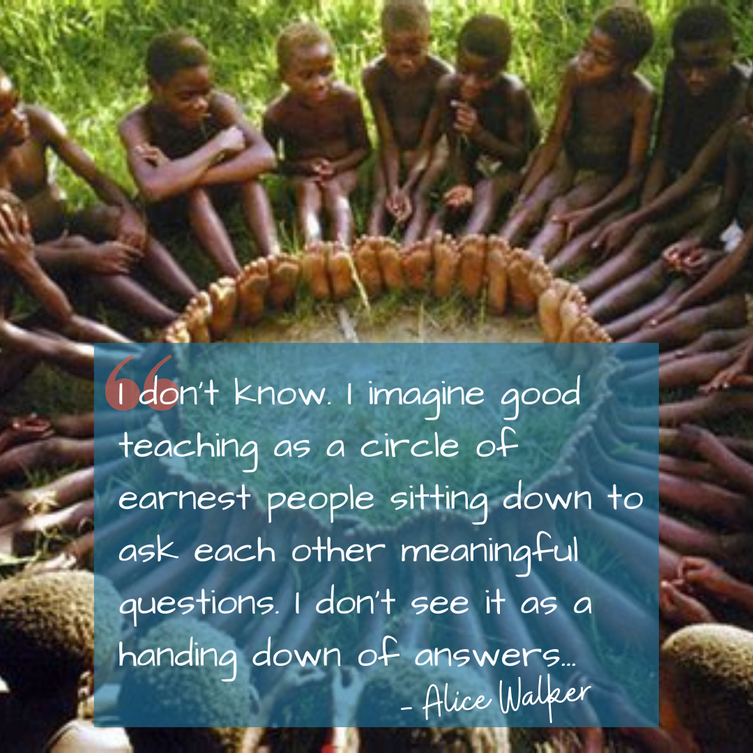 As part of Women's History Month, we honor Alice Malsenior Tallulah-Kate Walker, an American novelist, short story writer, poet, and social activist. In 1982, she published the novel The Color Purple, for which she won the National Book Award for hardcover fiction and the Pulitzer Prize for Fiction. DRC News We have begun to roll out the social media video clips that Liam Crossen Films captured those last few days we were together at the Centers in November. Stay tuned to our Social Media platforms to see our kiddos talk about their experiences at DRC. As seen above, we are also honoring some inspiring women for Women's History Month on our social media. If you don't already, please like and follow our FaceBook and Instagram pages. |
|
© 2024 Whole Learners, Inc. 501(c)3
Deep Root Center
48 Riverside Drive, Canton, NY 13617
315*323*1435/[email protected]
Deep Root Center
48 Riverside Drive, Canton, NY 13617
315*323*1435/[email protected]
